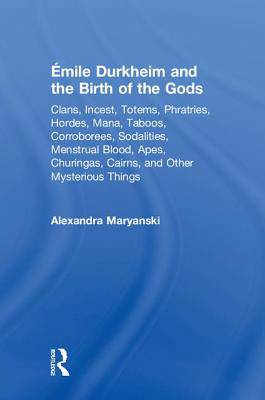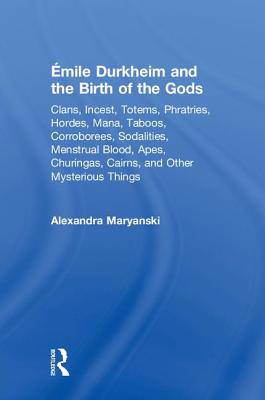
- Retrait gratuit dans votre magasin Club
- 7.000.000 titres dans notre catalogue
- Payer en toute sécurité
- Toujours un magasin près de chez vous
- Retrait gratuit dans votre magasin Club
- 7.000.000 titres dans notre catalogue
- Payer en toute sécurité
- Toujours un magasin près de chez vous
Émile Durkheim and the Birth of the Gods
Clans, Incest, Totems, Phratries, Hordes, Mana, Taboos, Corroborees, Sodalities, Menstrual Blood, Apes, Churingas, Cairns, and Other Mysterious Things
Alexandra Maryanski
Livre relié | Anglais
250,45 €
+ 500 points
Format
Description
Maryanski marshals recent data from primatology, paleontology, archaeology, genetics, and neuroscience to argue for a new understanding of Durkheim. Unlike most scholars then (and now) Durkheim believed that humans are naturally individualistic so he turned his attention to how individualism could be overcome to forge strong communities, fostering macro-societal integration. The analysis of an elementary religion, he believed, would allow us to see first-hand the fundamentals of solidarity, built around various totems marking sacred forces, emotion-arousing rituals, and community. Maryanski's unprecedented analysis confirms many of Durkheim's then untestable explanations, shedding new light on his relevance in the 21st century.
Spécifications
Parties prenantes
- Auteur(s) :
- Editeur:
Contenu
- Nombre de pages :
- 342
- Langue:
- Anglais
Caractéristiques
- EAN:
- 9781138580930
- Date de parution :
- 18-06-18
- Format:
- Livre relié
- Format numérique:
- Genaaid
- Dimensions :
- 152 mm x 229 mm
- Poids :
- 653 g







